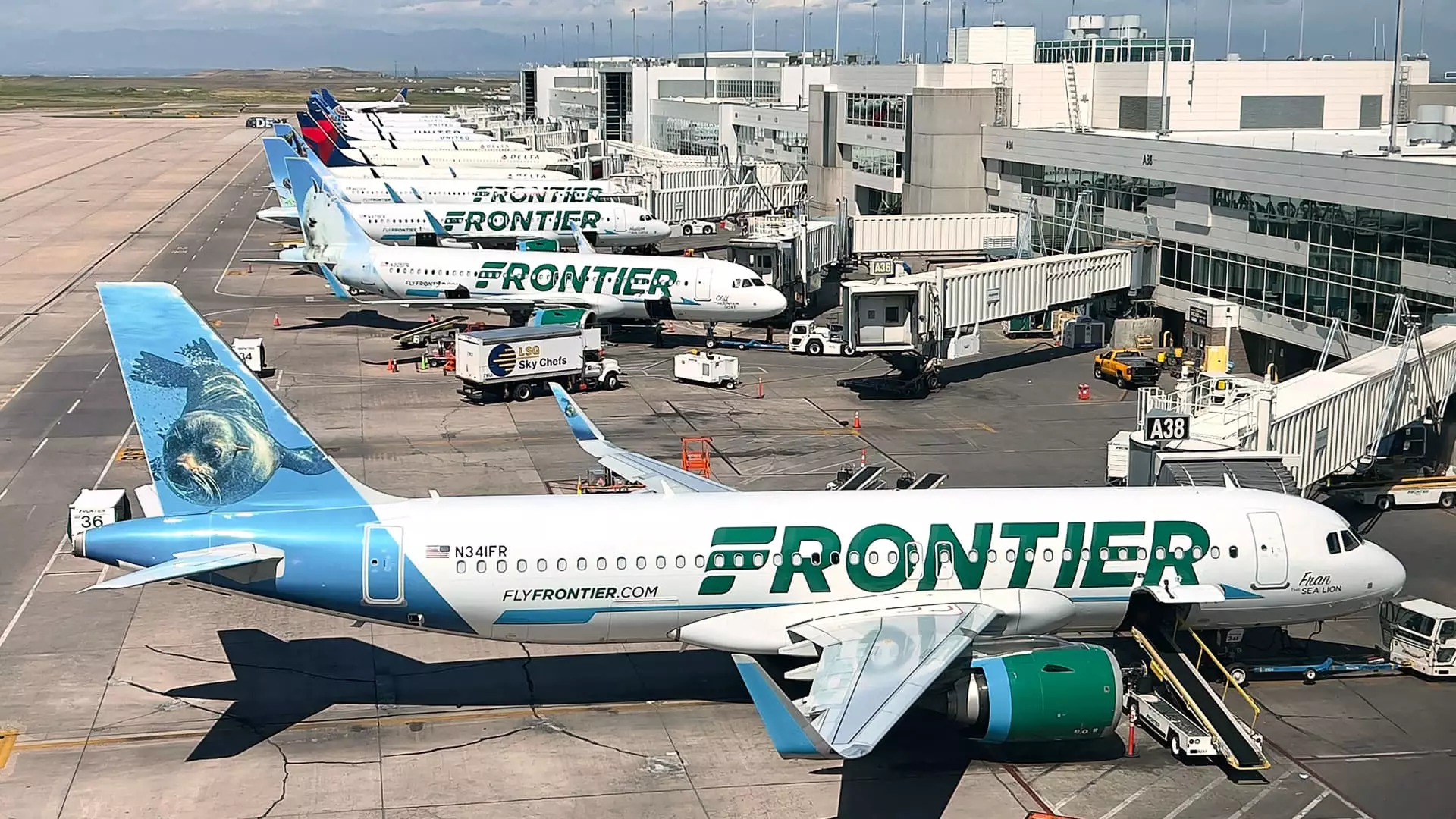In a move that marks a significant pivot in its business strategy, Frontier Airlines, a leading budget airline based in Denver, is set to introduce first-class seating options designed to attract a more affluent customer base. As airlines across the globe compete for passengers willing to pay a premium for added comfort, Frontier’s decision to implement a two-by-two seating arrangement, replacing the first two rows of three-by-three economy seats, exemplifies its intent to enhance its service offerings. This strategy comes at a time when providing extra legroom and personalized service is becoming increasingly vital in the fiercely competitive airline industry.
In conjunction with physical upgrades to its fleet, Frontier is also revitalizing its loyalty program to deliver greater benefits to its frequent fliers. Starting in September, gold members and above will gain access to complimentary seat upgrades when available. Higher-tier members, particularly platinum and diamond-level fliers, will enjoy the added perk of free companion tickets. This shift not only incentivizes frequent travelers but also strengthens customer loyalty—a crucial factor in an environment where airlines are vying for a share of the lucrative travel market.
CEO Barry Biffle anticipates that these new initiatives will significantly bolster the airline’s revenues, projecting an additional $250 million in earnings by 2026 and more than double that by 2028. He notes, “While we have the lowest costs in the industry, we don’t have the best revenue model,” indicating the necessity for Frontier to adapt and innovate in its offerings. The gap in revenue is apparent and not incorporating first-class seating has become a missed opportunity that the airline is now keen to address.
As major airlines like Delta and United have enhanced their cabins with premium seating options, the pressure mounts on budget airlines to keep pace. Although Frontier enters a battlefield dominated by larger carriers with extensive amenities, Biffle asserts that the cost-effectiveness of Frontier’s new offerings will be a key selling point. Competing airlines may provide full meals and upgraded services, but the affordability of Frontier’s first-class experience may just win over price-sensitive customers looking for better travel experiences without breaking the bank.
Frontier’s commitment to accommodating a growing demand for comfort doesn’t end with its first-class initiative. The airline also plans to continue selling rows of blocked middle seats—an added option that appeals to travelers seeking more space even in the economy class. In parallel, competitors like Southwest Airlines are embarking on their own adjustments by introducing extra legroom seating and assigned seating, further reshaping the options available in the budget segment.
While the recent challenges faced by other airlines, such as Spirit’s Chapter 11 bankruptcy, have reshaped the competitive landscape, Frontier’s strategic enhancements reflect a proactive approach to sustaining relevance and profitability in an evolving market. With these innovative measures, Frontier Airlines is not just keeping up with industry standards but seeking to redefine the budget travel experience—one first-class seat at a time.


Leave a Reply